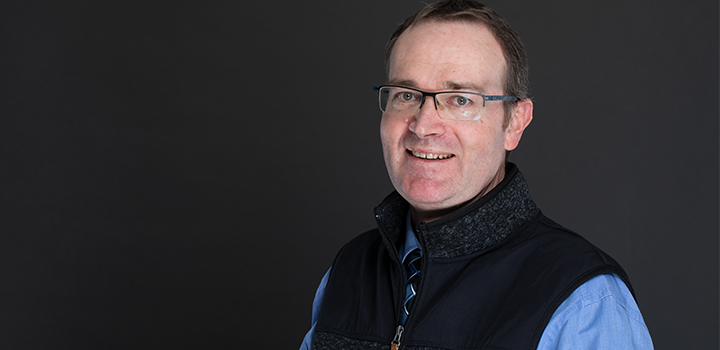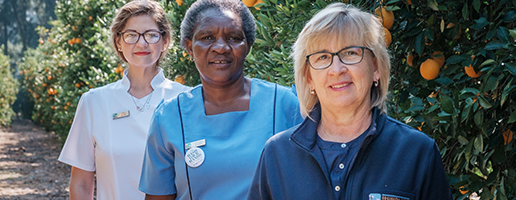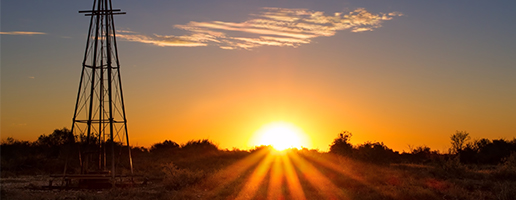Imparting the basics of caring for the elderly

In 2019, Professor Brent Tipping received a Distinguished Visitor Award from the Discovery Foundation to improve grassroots geriatric care by teaching doctors and nurses at Tintswalo District Hospital the skills they need to care for older persons.
The only problem with geriatric care is that you deal with children all day as opposed to paediatricians, who deal with parents all day.
By sharing this ironic truth, Professor Brent Tipping reveals the quirky humour that endears him to rural doctors and nurses in Mpumalanga’s impoverished Bushbuckridge district to whom he is teaching geriatric care skills.
The Head of the Division of Geriatric Medicine at the University of the Witwatersrand, Prof Tipping is paying it forward by sharing his skills and knowledge with healthcare workers who take care of older persons.
Teaching geriatric care skills at Tintswalo Hospital
In 2019, Prof Tipping received a Discovery Foundation Distinguished Visitor Award to increase training in the assessment and care of poorer older persons from rural areas at Tintswalo District Hospital.
The 432-bed hospital is among a handful of health facilities that serve around 550 000 people in 135 settlements close to South Africa’s borders with Swaziland and Mozambique. An estimated 34.4% of people here are unemployed, while malnutrition, HIV and TB, sexually transmitted infections and drug abuse are rife. Only 20% of toilets are connected to a sewage system and just 22% of homes benefit from weekly refuse removal.
One of the most worrying statistics for the slowly growing network of people caring for the elderly is the 20% of their patients who are HIV positive. “Until you actually see the conditions and chronic diseases, you don’t realise the challenge,” Prof Tipping says. He explains that chronic conditions like HIV and TB, diabetes and hypertension tend to age people far more quickly.
The folly of treating symptoms only
“A lot of patients are not just old but have become ill. Many healthcare practitioners write off their complaints and put them down to age,” Prof Tipping explains. “It is an entrenched treatment behaviour that a lot of symptoms and disabilities are put down to age, when it’s actually disease. It’s our job to manage disease.”
So, how can doctors and nurses help the elderly stay healthy? “There are a lot of simple things we can do,” Prof Tipping says. “Like explain to a Gogo that you won’t get a knee replacement because your knee is sore, but the physios can teach you how to exercise and walk with a stick. We aim to improve the clinician’s confidence in a basic assessment. If we do nothing else but generate enthusiasm for the concept that old people are very important in the community, we’ll have got somewhere.”
He says very few countries in Africa pay old people to stay alive. “The rural and pension grants are very important to them. We’re not trying to change the world here; we’re just focusing on how we can improve confidence in the care of old folk.”
He outlines how Tintswalo’s long-standing link with Wits University’s medical campus has resulted in a steady stream of young medical students and doctors doing their rural training at the hospital − and how it has evolved into his training project.
“I’ve only been involved for a year, but Wits has been sending students there for many years. One of my old classmates is now a senior doctor at Tintswalo, which is some 470 km from Johannesburg,” he says.
Tintswalo Hospital is a primary referral centre for all psychiatry patients in the area. Prof Tipping says rural and semi-urban health services don’t get enough support for training in subspecialist care, including that of older persons.
Research-based on-site training
Wits University is involved in longitudinal ageing studies within the Bushbuckridge area, providing vital baseline demographic and disease information about the older population. Besides doctors, Prof Tipping and his expert South African Geriatric Society colleagues are training nurses at the nursing school attached to the hospital.
What is the most important lesson for anyone caring for the elderly? “Just listen to your patient,” he says without hesitation. “We have to understand our patients and listen to them. It’s one of the tricks in geriatrics. For example, they’ll leave the hospital complaining of a sore foot and one week later, they’ll be back with the same problem because nobody listened to the problem. Doctors end up managing the symptom, not the problem.”
Boosting geriatric care at grassroots level
“We know exactly what’s wrong with people, but we need to get out to the clinics in the research areas and improve care at that level. There’s an interesting change in dynamics in the care of older people. The previous care model was that the family looked after them. Now there’s a need for old age homes. With just 13 geriatricians in South Africa – six in Gauteng, with one in training – the value of his project cannot be underestimated,” he explains.
Tintswalo Hospital and the 14 primary healthcare clinics it serves will benefit from the training, which is taking place from 2019 to 2021. “There’s a Wits rural conference centre about 10 km from Tintswalo Hospital where we’ll offer a basic geriatric programme from the South African Geriatric Society. When I first mentioned the idea, there was tremendous enthusiasm for it, so the uptake will be good,” Prof Tipping concludes.
This article appeared in the 2019 Discovery Foundation Awards book and has been edited for length.
About the Discovery Foundation
Since 2006, the Discovery Foundation has invested over R256 million in grants to support academic medicine through research, development and training medical specialists in South Africa.
The Discovery Foundation is an independent trust with a clear focus – to strengthen the healthcare system – by making sure that more people have access to specialised healthcare services. Each year, the Discovery Foundation gives five different awards to outstanding individual and institutional awardees in the public healthcare sector.
Related articles

All women should have access to breast health services
Every woman has the right to affordable and accessible healthcare – and public-private partnerships can make that possible. The Breast Health Foundation and the Discovery Fund have joined forces to give all women access to quality breast health services.

Hlokomela Women’s Clinic – a safe haven for women
Where do rural women go when they need a pap smear, a mammogram, or suspect they may have breast cancer? In the town of Hoedspruit in Limpopo, they go to the Hlokomela Women’s Clinic, where professional nurse Sonja Botha welcomes them with open arms.

Hlokomela: a case study in partnership excellence
The Hlokomela programme, built around the passion of Christine du Preez, a nursing sister married to a Limpopo fruit farmer, is an impressive demonstration of the power of strategic partnerships for social good.